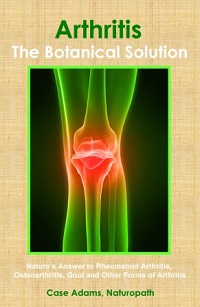Eye Health: 10 Harmful Habits

In this article
What Causes Bad Eyesight?
Bad eyesight and vision problems can be attributed to multiple factors such as poor vision care, age, lifestyle, environment, and genetics. But lately, modern lifestyle habits have emerged as major culprits that can harm your vision.
The chances are that you are unaware about some of your daily habits that are adversely affecting your eyesight. But if you know them, you can certainly make adjustments.
Here they are! Beware of these top 10 bad habits that can cost you your vision.
Too Much Screen Time
This one must not be a surprise for you! The blue light emitted from the screen of your digital devices like laptops, IPad, and mobile phones is responsible for digital eyestrain and retina damage. Blue light is more harmful to kids’ eyes. So try to limit your screen time as much as possible. Also, apply brightness filters, increase the font size, and wear glasses that block blue light.
Rubbing Your Eyes
Rubbing your eyes is bad for your lens and cornea. It can generate injury leading to infection and even vision impairment. If you rub your eyes out of habit, try using a cold compress for a soothing effect. However, contact your eye doctor if you feel constant itching and irritation in your eyes which compels you to rub them frequently.
Using Old Eye Make-up
It’s not ok to use your eyeliner, mascara, or other eye make-up products for even a single day beyond the expiry date. They can trigger an eye infection or allergic reaction. So throw your expired make-up products right away. Remove your eye make-up before going to sleep and use clean make-up products only.
Avoiding Sunglasses
Don’t be lazy in carrying and wearing your sunglasses whenever you are faced with glare outdoors. They protect your eyes from the harmful UV and HEV rays of the sun. These rays are capable of prematurely aging your eyes and causing sunburn in your eye. Cataracts and eyelid cancer can also result from extended exposure of your eyes to the sun.
Sleeping While Wearing Contact Lenses
Removing contacts might seem like a big chore if you are exhausted by your sleep time. But not removing them before sleeping can get you in trouble. You can catch bacterial and fungal eye infections as the cornea cells can’t fight the bacteria in your lens in a sleeping state. So always remove your contact lenses with clean hands before bedtime.
Smoking Cigarettes & Other Forms of Tobacco
Smoking doesn’t instantly come up in the list of what causes bad eyesight. It is generally associated with heart and lung diseases. The lesser-known fact is that there is a long list of vision problems that you can get due to smoking. Some of them are glaucoma, diabetic retinopathy, AMD, and dry eye syndrome. Do we need to say more? Quit smoking now!
Not Eating Healthy
You devoid your body of nutrition if you over indulge in junk food. Many people don’t know that a poor diet can also cause bad eyesight. Some of the healthy and nutritious foods that you must include in your diet for healthy vision are:-
Not Staying Hydrated
Drinking enough water is vital for maintaining eye lubricant and tear production. Lack of which can lead to dry and puffy eyes. Don’t underestimate the importance of your fluid intake. Drink lots of water, juices, and other healthy liquids to protect your eyes from getting dehydrated. You can also use lubricating eye drops if needed.
Not Managing Stress & Anxiety
Mental stress elevates the level of cortisol hormone, known as a stress hormone, in your body. It negatively impacts the nervous system. An improperly functioning nervous system triggers diseases like glaucoma and optic neuropathy. So it is of utmost importance that you manage your mental stress via meditation, exercise, a healthy diet, and positive thinking. Also provide some rest for eyes in between work.
Not Scheduling Routine Eye Exams
Regular eye exams are a vital part of proper eye care. Routine eye exams are not only helpful in detecting nearsightedness and farsightedness. Many other severe eye diseases can be detected and treated early via eye exam, which can otherwise irreversibly damage your vision. So get a comprehensive eye exam every 1-2 years to keep your vision in check.
Take Away
While potential risk factors like genetics and age are not in your control, you can minimize your chances of vision problems by eliminating habits that cause bad eyesight. Kick out these harmful habits with solid resolve and replace them with good lifestyle choices such as exercising, eating healthy, and giving proper rest to your eyes.
Author Bio:

Aaron Barriga is the online marketing manager for Insight Vision Center. With a knack for understanding medical procedures, and an interest in eye and vision health, Aaron loves to share what he knows and what he learns. He blogs to inform readers about the latest eye care technology and other topics related to eye care, especially LASIK.

















